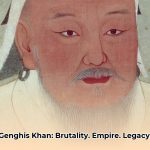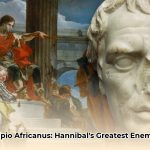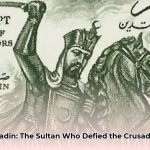General Vo Nguyen Giap wasn’t just a military leader; he was a nation builder. This article delves into the life of the strategist who humbled France and the United States, showcasing his evolution, innovative tactics, and the complex legacy he left behind. From his early influences to the pivotal battles that defined his career, discover how Giap reshaped warfare and secured Vietnam’s independence. For another example of military genius impacting history, see Genghis Khan’s tactics.
From Law to Liberation: Shaping a Military Strategist
Born in 1911 in Quang Binh province, Vo Nguyen Giap’s initial path was far from the battlefield. He studied law at Hanoi University, immersing himself in political activism and Vietnamese nationalism. However, the desire for independence led him to abandon his legal pursuits and embrace revolutionary ideals, marking a pivotal shift that would define his life. This transformation highlights Giap’s ability to adapt and his unwavering commitment to Vietnamese self-determination. How did his legal training shape his approach to military strategy and negotiation?
Mastering the Art of Guerrilla Warfare: A Symphony of Strategy
Giap’s brilliance lay in his mastery of guerrilla warfare. Recognizing Vietnam’s strengths – its dense jungles and supportive population – he transformed these elements into strategic advantages. He understood that confronting a technologically superior enemy head-on was futile. Instead, he focused on protracted warfare, utilizing ambushes, sabotage, and the element of surprise to wear down his opponents. The Battle of Dien Bien Phu epitomizes this approach, where Giap meticulously planned a siege that exploited the terrain and logistical weaknesses of the French. His understanding of terrain and resourcefulness turned liabilities into assets.
People’s War, People’s Army: Forging Unity and Resistance
Giap understood that military strength alone was insufficient; he needed the unwavering support of the Vietnamese people. His seminal work, People’s War, People’s Army, articulated a strategy of total national mobilization. Every citizen, from farmers to intellectuals, became a participant in the war effort, providing intelligence, supplies, and manpower. This concept of a unified national resistance transformed the conflict into a struggle for national survival, bolstering morale and ensuring a constant flow of resources to the Viet Minh and later the Viet Cong. National unity was the bedrock of Giap’s ability to resist foreign powers.
Confronting a Superpower: Adapting to the American War
Following the French defeat, the United States stepped in, escalating the conflict with its vast military resources. Giap adapted his tactics to neutralize America’s technological advantages. The Ho Chi Minh Trail, a complex network of supply routes snaking through Laos and Cambodia, became a vital lifeline, allowing the North Vietnamese to sustain their forces in the South. Giap also skillfully employed psychological warfare, exploiting anti-war sentiment in the United States to erode public support for the conflict. His ability to adapt to changing circumstances underscores his strategic brilliance.
The Human Cost of Victory: A Legacy of Complexity
While revered as a national hero, Giap’s legacy is not without its complexities. The wars he waged resulted in immense suffering and loss of life, both among soldiers and civilians. Events like the Tet Offensive, while strategically significant, led to devastating casualties. Historians continue to debate the ethical implications of Giap’s decisions, particularly regarding civilian casualties and the use of certain tactics. Acknowledging these complexities is crucial to understanding the complete picture of Giap’s life and leadership. Estimates suggest that the Vietnam War resulted in the deaths of approximately 2 million civilians and 1.1 million North Vietnamese and Viet Cong fighters.
Giap’s Enduring Influence: Lessons in Asymmetric Warfare
Vo Nguyen Giap’s strategic insights continue to resonate with military thinkers worldwide. His emphasis on guerrilla warfare, national mobilization, and understanding the enemy’s weaknesses offers valuable lessons for contemporary conflicts. His strategies are studied in military academies, and his writings have become essential reading for those interested in asymmetric warfare. Giap’s life demonstrates that victory is not solely determined by military might, but by a combination of strategic thinking, national will, and an understanding of human psychology. His story serves as a testament to the power of resilience and the enduring impact of a leader who dared to challenge conventional warfare. According to a 2021 analysis by the Institute for the Study of War, Giap’s principles remain relevant in understanding insurgent movements and resistance strategies.
How Did Civilian Casualties Influence Giap’s Military Strategies?
Vo Nguyen Giap’s military strategies, though successful in achieving Vietnamese independence, are often scrutinized for their impact on civilian populations. While celebrated as a hero, the question remains: How did civilian casualties influence Giap’s military strategies? Understanding the nuances of Giap’s tactics requires a critical examination of the human cost and its potential impact on his decision-making.
The Doctrine of People’s War: Blurring the Lines
Giap’s implementation of “people’s war” relied on the active involvement of civilians in the war effort. This blurred the lines between combatants and non-combatants, making villages and towns potential military targets. Did this inherent risk to civilians factor into Giap’s strategic calculations, or was it viewed as an unavoidable consequence of total mobilization? Some argue that Giap prioritized victory above all else, while others contend that he sought to minimize civilian casualties whenever possible, within the constraints of the conflict.
Strategic Use of Terrain and Mobility: A Double-Edged Sword
Giap’s masterful use of Vietnam’s terrain, including jungles, rice paddies, and mountains, provided cover and concealment for his forces. However, these same areas often served as civilian homes and agricultural lands, exposing them to the dangers of combat. His reliance on hit-and-run tactics and underground tunnel networks further increased the risk to civilians living in contested zones. Did Giap consider the potential impact on civilian populations when choosing these tactics, or were military objectives the primary consideration?
The Tet Offensive: A Turning Point in Public Perception
The Tet Offensive of 1968, while a military setback for the Viet Cong, had a profound impact on public opinion, particularly in the United States. The intense urban combat led to significant civilian casualties, which were vividly portrayed in the media. These images of suffering and destruction fueled anti-war sentiment and eroded support for the American involvement in Vietnam. Did the Tet Offensive force Giap to reassess his strategies and consider the potential consequences of civilian casualties on the broader political landscape?
Limited Data and Conflicting Narratives: The Challenge of Historical Analysis
Assessing the impact of civilian casualties on Giap’s military strategies is complicated by the limited availability of reliable data and conflicting narratives. Casualty figures are often incomplete and subject to political bias, making it difficult to determine the true extent of civilian suffering. Interpretations of Giap’s actions also vary widely, with some portraying him as a ruthless pragmatist and others as a compassionate leader who sought to protect his people. Nuances are often ignored in service of a simplified narrative.
Giap’s Legacy: A Complex and Contested Inheritance
Giap is celebrated in Vietnam as the architect of independence and a brilliant military strategist. However, his legacy is also marked by the immense human cost of the wars he led. The question of how civilian casualties influenced his military strategies remains a subject of ongoing debate and historical analysis. Understanding the complexities of Giap’s decisions requires grappling with the ethical dilemmas of warfare and acknowledging the human toll of armed conflict.
Key Takeaways:
- Giap’s “people’s war” strategy inherently involved civilians in the conflict, blurring the lines between combatants and non-combatants.
- His strategic use of terrain and mobility, while effective militarily, also exposed civilians to the dangers of combat.
- The Tet Offensive highlighted the devastating impact of urban combat on civilian populations and influenced public opinion.
- Limited data and conflicting narratives make it difficult to definitively assess the impact of civilian casualties on Giap’s military strategies.
- Giap’s legacy remains complex and contested, reflecting the ethical dilemmas of warfare and the human cost of armed conflict.
Vo Nguyen Giap’s Enduring Impact on Post-War Vietnamese Politics
Giap’s influence on Vietnam’s post-war landscape extends far beyond the battlefield. His military achievements and strategic thinking profoundly shaped the nation’s political trajectory, leaving an indelible mark on its ideology, structure, and development. Examining his impact provides insights into the complexities of post-conflict nation-building and the enduring legacy of a revolutionary leader. What specific aspects of Vietnamese politics were most influenced by Giap’s contributions?
Key Takeaways:
- Giap’s military strategies, emphasizing guerrilla warfare and people’s war, shaped Vietnam’s post-war national identity and political discourse.
- His influence extended beyond military affairs, impacting the nation’s political ideology and social policies.
- Giap’s relationship with the ruling Communist Party of Vietnam evolved over time, reflecting shifts in power dynamics and political priorities.
- Ethical debates surrounding his wartime actions continue to shape discussions about his legacy and the human cost of conflict.
- His writings and teachings remain influential in military studies, particularly in the context of unconventional warfare and resistance movements.
A Revolutionary Shaped by Nationalism and Ideology
Vo Nguyen Giap emerged as a key figure in the Vietnamese struggle for independence, driven by a potent combination of nationalism and Marxist ideology. His early involvement in anti-colonial movements and his deep understanding of Vietnamese history and culture shaped his revolutionary worldview. This ideological foundation influenced his military strategies and his vision for a post-war Vietnam. How did Giap’s ideological beliefs translate into specific political policies and social reforms after the war?
Mastering the Art of People’s War: A Political and Military Strategy
Giap’s concept of “people’s war” was not merely a military strategy; it was a political and social revolution. By mobilizing the entire nation in the war effort, he transformed the conflict into a struggle for national liberation. This approach fostered a sense of unity and purpose among the Vietnamese people, laying the groundwork for a strong and independent nation. His integration of civilians and military forces was a novel approach to warfare. How did this mobilization impact the social and political structures of post-war Vietnam?
Navigating the Post-War Political Landscape: Power and Marginalization
After the war, Giap held prominent positions in the Vietnamese government, including Minister of Defense and Deputy Prime Minister. However, his influence gradually waned as younger leaders rose through the ranks of the Communist Party. While he remained a respected figure, he was eventually sidelined from key decision-making roles. This shift in power dynamics reflects the complex political landscape of post-war Vietnam and the challenges faced by revolutionary leaders in adapting to peacetime governance. How did Giap’s political views evolve during his later years, and what role did he play in shaping Vietnam’s foreign policy and economic development?
A Complex and Contested Legacy: Ethical Debates and Enduring Influence
Giap’s legacy remains a subject of debate and discussion, particularly regarding the ethical implications of his wartime actions. While he is celebrated as a national hero, some critics question the human cost of his strategies and the impact of his policies on civilian populations. Despite these controversies, Giap’s contributions to Vietnamese independence and his influence on military thought are undeniable. His writings and teachings continue to inspire military leaders and revolutionary movements around the world.
Key Considerations:
- Giap’s early devotion to Vietnamese nationalism and Marxist ideology shaped his political vision and military strategies.
- His concept of “people’s war” had a profound impact on Vietnamese society, fostering national unity and transforming the relationship between the military and civilian populations.
- His post-war political career was marked by both influence and marginalization, reflecting the complex power dynamics within the ruling Communist Party.
- His legacy remains complex and contested, with ongoing debates about the ethical implications of his wartime actions and the human cost of conflict.
Giap’s Enduring Military Genius: Innovation, Adaptability, and Psychological Edge
Vo Nguyen Giap was more than a military commander; he was an innovator who transformed the art of warfare. His ability to adapt to changing circumstances, his understanding of psychological warfare, and his unwavering commitment to his cause made him a formidable opponent on the battlefield. Studying his strategies offers valuable insights into the dynamics of conflict and the importance of leadership in achieving victory. What specific elements of Giap’s military thinking contributed to his success against seemingly superior adversaries?
Key Takeaways:
- Giap’s military genius resided in his ability to innovate and adapt to changing circumstances, developing effective strategies for guerrilla warfare.
- He understood the importance of political and psychological warfare, using propaganda and mobilization to win the hearts and minds of the Vietnamese people.
- His victories came at an immense human cost, raising ethical questions about the nature of war and the responsibilities of military leaders.
- His strategies continue to inform modern military doctrine, particularly in the context of counterinsurgency and asymmetric warfare.
- Understanding his methods requires a comprehensive analysis of his tactical innovations, his political acumen, and his psychological insights.
From Scholar to General: The Making of a Revolutionary Strategist
Vo Nguyen Giap’s journey from a law student to a military commander was shaped by his deep understanding of Vietnamese history and culture, as well as his exposure to Marxist ideology. This intellectual foundation provided him with a unique perspective on the nature of conflict and the importance of national liberation. His ability to combine theory and practice allowed him to develop innovative strategies that challenged conventional military thinking. How did Giap’s background in law and history influence his approach to military strategy and leadership?
Mastering the Art of Guerrilla Warfare: Innovation and Adaptability
Giap’s most significant contribution to military thought was his mastery of guerrilla warfare. He understood that a smaller, less well-equipped force could defeat a larger, more technologically advanced enemy by employing unconventional tactics, such as ambushes, sabotage, and hit-and-run attacks. He also recognized the importance of adapting to changing circumstances and constantly innovating to stay one step ahead of the enemy. This adaptability and innovation were key to his success against both the French and the Americans.
Psychological Warfare: Winning Hearts and Minds
Giap understood that military victory was not solely determined by battlefield performance. He also recognized the importance of political and psychological warfare, using propaganda and mobilization to win the hearts and minds of the Vietnamese people. He skillfully exploited anti-war sentiment in the United States, undermining public support for the conflict and eroding the morale of American soldiers. His understanding of the enemy’s vulnerabilities allowed him to wage a war of attrition that ultimately led to victory.
A Legacy of Controversy: Victory at What Cost?
While Giap is celebrated as a military genius and a national hero in Vietnam, his legacy is also marked by controversy. The wars he led resulted in immense suffering and loss of life, raising ethical questions about the human cost of conflict. Some critics argue that his strategies were ruthless and that he was willing to sacrifice countless lives to achieve his objectives. Others contend that he was a compassionate leader who sought to minimize civilian casualties whenever possible, within the constraints of the conflict.
Enduring Relevance: Lessons for the Modern World
Despite the ethical complexities, Giap’s strategies remain relevant in the modern world. His emphasis on guerrilla warfare, political and psychological warfare, and adaptability offers valuable lessons for military leaders and policymakers facing contemporary conflicts. His insights into the dynamics of asymmetric warfare and the importance of understanding the enemy’s vulnerabilities continue to inform military doctrine and counterinsurgency strategies.
- Discover Life in a Medieval Castle: Beyond Battles & Banquets: Unveiling Daily Life - August 2, 2025
- Scipio Africanus: Hannibal’s Nemesis: Rise, Fall, and Legacy - August 2, 2025
- Unveiling Superorganisms: Are Ant Colonies One Mind? - August 2, 2025













